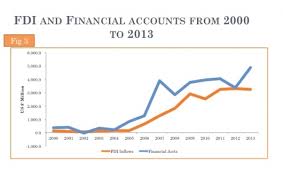 Speakers at a breakfast meeting in Accra have called on the government to come out with practical policies to help retain a major portion of the proceeds from Foreign Direct Investments (FDIs) in the country.
Speakers at a breakfast meeting in Accra have called on the government to come out with practical policies to help retain a major portion of the proceeds from Foreign Direct Investments (FDIs) in the country.
According to them, the repatriation of profits, dividends, interest payments, as well as outsourcing of projects among other things did not allow the country to fully benefit from such investments.
The speakers, Mr Eric Koranteng, Head of Balance of Payments Division of the Bank of Ghana, and Dr Tony Aubyn, Chief Executive Officer of the Minerals Commission, made the call at an executive breakfast meeting under the auspices of First Atlantic Bank in Accra over the weekend.
“We should rather focus on means to retain whatever income flows out of the FDIs in the country”, Mr Koranteng said.
According to him, it was imperative for the country to provide some of the services sourced outside by the foreign companies.
“And to make this work, the local content policy should be encouraged so much so that at the end of the day, we will not have to seek non-resident companies to provide services”, he added.
On remittances, Mr Koranteng admitted that the flows were significant.
However, he said, because of the increases in income outflows and the other services sourced outside by most of the companies in the country, the impact on the current account was minimal.
“Suffice it to say that without it, the current account position would have been worse.
“We expect that as the remittances were rising, the current account will reduce. However, that is not happening that much because of the service and income outflows we are experiencing,” he said.
Dr Aubyn for his part, noted for instance that in the mining sector, the outsourcing of services among other things was high and that did not allow a chunk of the funds from FDIs in the mining sector to stay in the country.
“They import a lot including activated carbons which can be produced here and we need to ensure that they do not import”, he said.
Dr Aubyn also noted that the mining sector must be seen as an agent for development and not just concentrate on revenue, adding that through that “the benefits from the sector will inure much more to the state than it is presently”.
The Executive Director of the First Atlantic Bank, Mr Daniel W. Addo, stressed the need for collaboration to set uniformed regulatory guidelines for dealing with outflow of funds from the region to cater for the money laundering challenge.
He said there was the need for deliberate promotion and facilitation of the convertibility of ECOWAS currencies.
Dr Addo also called for support from commercial banks and other authorised dealers within the region to come up with appropriate guidelines and code of conduct for quoting and trading in ECOWAS currencies, including rate publication and arbitration.
